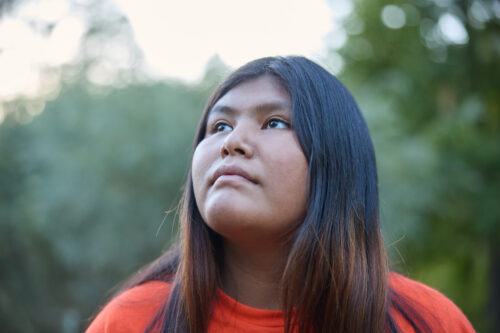
A collaboration between the University of Montana and Johns Hopkins University recently secured a $7.1 million grant to promote adolescent health among Native youth across Montana and Navajo Nation.
The five-year grant was earned by the University of Montana Center for Children, Families and Workforce Development (UM CCFWD) and the Johns Hopkins Center for Indigenous Health (JH CIH). It is funded by the U.S. Office of the Assistant Secretary of Health and Office of Population Affairs through their Teen Pregnancy Prevention grant.
As a collective, the Centers will provide evidence-based programs for Native youth in Montana, Arizona, and New Mexico to reduce teen birth and sexually transmitted infection rates. The program will leverage community and cultural strengths to postpone sexual initiation, clearly communicate the risks and consequences associated with sex, and develop youth’s knowledge, attitudes, beliefs, and skills to make positive decisions as they move through adolescence.
“This multiyear, multistate prevention grant will provide transformative and foundational infrastructure from which American Indian youth will be supported, served and valued within their tribal culture,” said Dr. Kristen Rogers (UM CCFWD), the principal director on the grant.
A key piece of the project is a focus on health equity, with a community-engaged, participatory approach to project implementation. Community and youth advisory boards within each setting will be central in the development, implementation, and evaluation of all project activities. The youth programming will also have a foundational methodology in trauma-informed care and positive youth development.
Across Navajo Nation, the new prevention programs will be implemented during summer camps and in schools by JH CIH staff and family health coaches. The summer camps will take place over 2 weeks and include a sports component, with the first summer camp scheduled to take place in Chinle, AZ in 2024 and in Shiprock, NM in 2025. The school-based program will be delivered in Tuba City Unified School District schools (exact schools to be determined).
“Our Center is excited to work with Native communities in Arizona, New Mexico, and Montana to provide adolescent health education that leverages cultural strengths and empowers Native youth to make healthy choices” says Dr. Jennifer Richards, a Diné tribal member and Assistant Scientist at the Center for Indigenous Health.
In Montana, Native youth who access health and mental health care at All Nations Health Center in Missoula or Rocky Boy Health Center on the Rocky Boy’s Indian Reservation will receive evidence-based, culturally appropriate programming for prevention of unwanted teen pregnancy and sexual transmitted infections (STIs).
Skye McGinty is executive director of the All Nations Health Center, which serves more than 18 tribes throughout Montana. She said, “We are thrilled to partner with the University of Montana, the Chippewa Cree Tribe of Montana and the Navajo Nation on culturally appropriate reproductive education. Decolonizing our bodies starts with the kind of empowerment this grant will provide for Native youth and their families.”